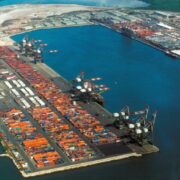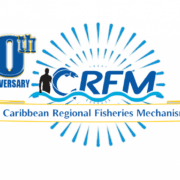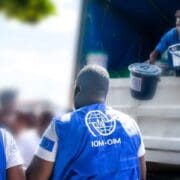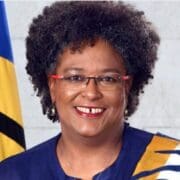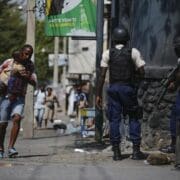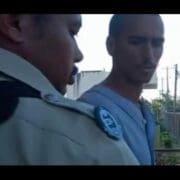Black Immigrant Daily News
By Cristina Caus
News Americas, NEW YORK, NY, Fri. Mar. 17, 2023: Last month, Guyana gathered leaders for a 4-day international energy conference to discuss how the oil & gas sector can harness the country’s development. Given the current global energy context, sustainability was the hot-button topic throughout the program and the conversations revolved around how can Guyana, an oil superpower in the making, explore and produce oil sustainably while remaining aligned with the world’s 2050 net-zero goals.
While some global powers, pushing their agendas toward carbon-free and clean energy projects, view the Caribbean oil hype skeptically, others are highly optimistic about the opportunities arising. Can an oil & gas-based economy be sustainable?
In a broader sense, sustainability is not an environmental-only term, as many think. It encompasses fulfilling the needs of the current generation without compromising the needs of future generations while balancing economic growth, environmental protection, and social well-being.
Since the oil & gas production rising in Guyana, the development of communities and renewable energy initiatives has been a focus for the key oil players and the government. Multiple achievements and promising plans were shared during the 2023 International Energy Conference in Guyana, all fueled by the nation’s petroleum industry.
ExxonMobil has invested in the community by partnering with local entities to engage with the community and address community challenges since 2012. The focus areas include the environment, STEM education, and women, youth and community empowerment. Over the past years, ExxonMobil Foundation invested more than US$10 million in Guyana for research, sustainable employment and conservation, collaborating with the University of Guyana to train Guyanese for sustainable job opportunities and expand community-supported conservation. The investment is also intended to support Guyana’s Green State Development Plan, the country’s 15-year development plan that aims, among other things, to diversify Guyana’s economy and balance economic growth with the sustainable management and conservation of the country’s ecosystems.
President of ExxonMobil Guyana, Alistair Routledge shared during the conference that the US$160 million Ogle Operations Center, in construction at the moment, is proof of long-term investment in Guyana’s prosperity and sustainability. With the latest digital capabilities, this modern center in Guyana aims to control Exxon’s offshore operations and around 130 ex-pats are now training locals to build the future workforce. The company has comprehensive mentoring programs in place to ensure that Guyanese will run the operations in the near future.
CNOOC Petroleum Guyana Limited (CPGL) has been building communities in Guyana since it started its oil & gas activities. Liu Xiaoxiang, President CPGL shared the latest news on the 130 solar lights system donation to Moraikobai, the only indigenous village in Region Five. As part of the “building the partnership bridge” plan between China and Guyana, CPGL’s CSR initiatives are selected under four main pillars: developing Amerindian communities, promoting Education, the transition to Clean and Renewable Energy and fostering Safe and Thriving Communities. To date, CPGL has planned and implemented over 30 projects across six regions in Guyana in addition to the Greater Guyana Initiative (GGI).
The Greater Guyana Initiative is a partnership with the Stabroek Block co-venturers ExxonMobil, Hess and CNOOC; and the People of Guyana. This is intended to support communities to help develop the local workforce, build human capacity, advance education and improve healthcare, and promote sustainable economic diversification for a growing Guyana. The Greater Guyana Initiative has funded a Hinterland Poultry Project valued at more than US $608,000 to boost the poultry industry in the hinterland regions. This project, also called the ‘Egg Sandwich Project,’ is the first regional socio-economic project funded by the GGI. It is focused on enabling the hinterland residents to raise their local poultry capacity, thereby enhancing consumer access to high-quality local poultry products and economic independence.
A lot is happening in Guyana because of oil & gas, “… because investing in Guyana means an investment in the region,” as the Minister of Finance of Guyana, Dr. Ashni Singh, highlighted. From investment in urban development to education projects and social infrastructure (such as the building of 12 new hospitals), the new Gas-to-Energy Project will address long-standing issues of high electricity costs. The government has allocated US $759 million for the development of the plants that are advancing this Gas-to-Energy project, set to significantly lower the cost of electricity, triggering rapid growth in industrial activity, and promoting a smooth transition to renewable energy sources countrywide.
The government has massive solar projects in store for the hinterland for 2023, part of Guyana’s Low Carbon Development Strategy (LCDS) 2030, which will benefit the coastal communities and the most remote areas. One of the initiatives funded through a line of credit of US $7.2 million from the Government of India starts this year and will include 30,000 150-watt solar photovoltaic units with batteries and lighting kits being installed in hinterland communities.
All these projects and initiatives place importance on ensuring that Guyanese across the country benefit from the petroleum sector through revenue and
investments in socio-economic development, which is a sustainable approach in essence. Case in point, what the Minister of Natural Resources of Guyana, Vickram Bharrat, has mentioned, “… the big powers built their economies on non-environmentally friendly practices. These are the same rich countries so concerned about the emissions that they are trying to limit production from natural resources. However, none offer help to small economies for the renewable energy transition, which requires massive government input financially.”
Now is the time and the place for countries like Guyana to ensure security for its people and the entire region by using the petroleum industry as a ladder to a sustainable future.
EDITOR’S NOTE: Cristina Caus is an international oil and gas business developer and consultant and holds a master’s degree in international business from Florida International University.
NewsAmericasNow.com


